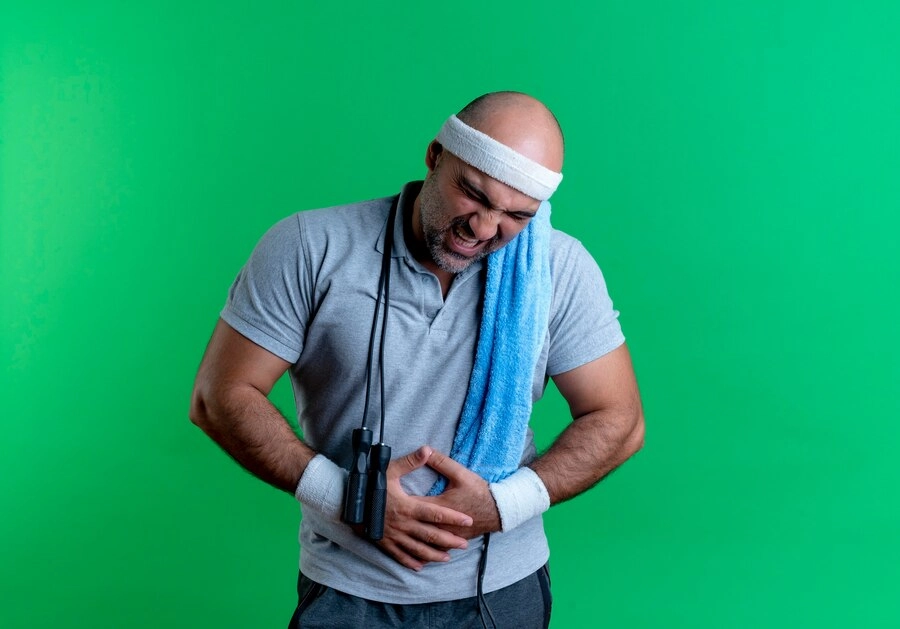How To Prevent Piles?
Category: General Surgery
Piles, commonly known as hemorrhoids, are swollen blood vessels in the rectum or anus that can cause pain, itching, bleeding, and discomfort. They are often the result of poor bowel habits, chronic constipation, or lifestyle factors such as long hours of sitting. While piles are a common condition, they are also largely preventable with the right care. By making conscious changes in diet, daily habits, and activity levels, you can greatly reduce your chances of developing piles. Prevention not only saves you from discomfort but also reduces the need for treatments later in life.
At Lokmanya Hospitals, we emphasize the importance of early prevention and lifestyle management for conditions like piles. Our team of specialists not only provides advanced treatment options but also educates patients on adopting healthier routines that minimize the risk of recurrence. With a blend of medical expertise and patient-centered care, we ensure that individuals receive comprehensive support for both prevention and long-term relief.
What Causes Piles?
Piles occur when excessive pressure builds up in the lower rectum, causing veins to swell. Several risk factors contribute to this condition:
- Chronic constipation or straining during bowel movements
- Sitting on the toilet for long periods
- Low-fiber diets that make stools hard to pass
- Pregnancy, due to increased pelvic pressure
- Obesity and a sedentary lifestyle
Understanding the causes of piles makes prevention easier. While many cases can be managed with lifestyle changes, those with persistent symptoms may benefit from expert care at Lokmanya Hospitals, where experienced surgeons provide advanced treatment options, including piles surgery in Pune.
Dietary Habits To Prevent Piles
Your diet plays the most crucial role in preventing piles. A high-fiber diet ensures smooth bowel movements and reduces the strain on rectal veins.
- Eat fiber-rich foods: Fruits, vegetables, whole grains, and legumes keep stools soft.
- Drink plenty of water: At least 8–10 glasses a day helps maintain hydration and digestion.
- Limit processed foods: Fast food, fried snacks, and overly spicy meals can irritate the digestive system.
- Add probiotics: Yogurt and fermented foods support gut health and bowel regularity.
These dietary adjustments can significantly reduce your risk of developing piles over time.
Healthy Lifestyle Practices
Along with diet, simple daily habits can make a big difference in prevention.
- Exercise regularly: Activities like walking, swimming, or yoga improve circulation and prevent constipation.
- Avoid sitting too long: Prolonged sitting increases pressure on the rectal veins—take breaks to move around.
- Maintain a healthy weight: Extra weight, especially around the abdomen, puts pressure on the rectum.
- Practice proper toilet habits: Go when you feel the urge, avoid straining, and don’t spend unnecessary time in the washroom.
Consistently following these practices helps you maintain long-term digestive and rectal health.
Medical Support For Piles Prevention
Even with preventive care, some people may still experience symptoms due to genetic factors or chronic digestive issues. In such cases, consulting an experienced piles doctor is essential for early diagnosis and treatment.
For advanced or recurrent cases, expert piles surgeons in Pune at Lokmanya Hospitals provide minimally invasive procedures that ensure faster recovery and less discomfort. Early medical attention prevents small issues from becoming severe complications.
Why Choose Lokmanya Hospitals?
At Lokmanya Hospitals, patients receive complete care for piles, ranging from preventive guidance to advanced surgical treatments. With highly qualified doctors, modern medical technology, and patient-focused care, Lokmanya Hospitals ensures effective treatment, long-term relief, and better quality of life.
Conclusion
Preventing piles is not only possible but also simple when approached with the right balance of diet, exercise, and healthy daily habits. By eating fiber-rich meals, staying hydrated, and practicing good bowel habits, you can avoid the discomfort of piles. For those who experience symptoms despite preventive measures, seeking timely medical guidance is the best way forward. With expert specialists and advanced care, trusted hospitals like Lokmanya Hospitals are always available to provide the right support. Taking small steps today can save you from much bigger health challenges tomorrow.
FAQ’s
1. Can piles be permanently prevented?
Yes, a balanced diet, good hydration, and regular exercise can reduce the chances of developing piles long-term.
2. Does drinking water help in preventing piles?
Absolutely. Adequate water intake softens stools, preventing constipation and straining.
3. Are piles more common in pregnant women?
Yes, hormonal changes and added abdominal pressure during pregnancy increase the risk.
4. Can piles come back after treatment?
Yes, if preventive measures are not followed, piles can recur even after treatment.
5. When should I see a doctor for piles symptoms?
If you notice bleeding, severe pain, or persistent swelling, consult a piles doctor in Pune without delay.
6. Is surgery always needed for piles?
No, mild piles often improve with dietary and lifestyle changes. Surgery is reserved for severe cases.
7. Do piles go away on their own?
Small piles may shrink with proper care, but medical advice ensures safe and complete recovery.
Previous blog
What Causes Piles?
Next blog






